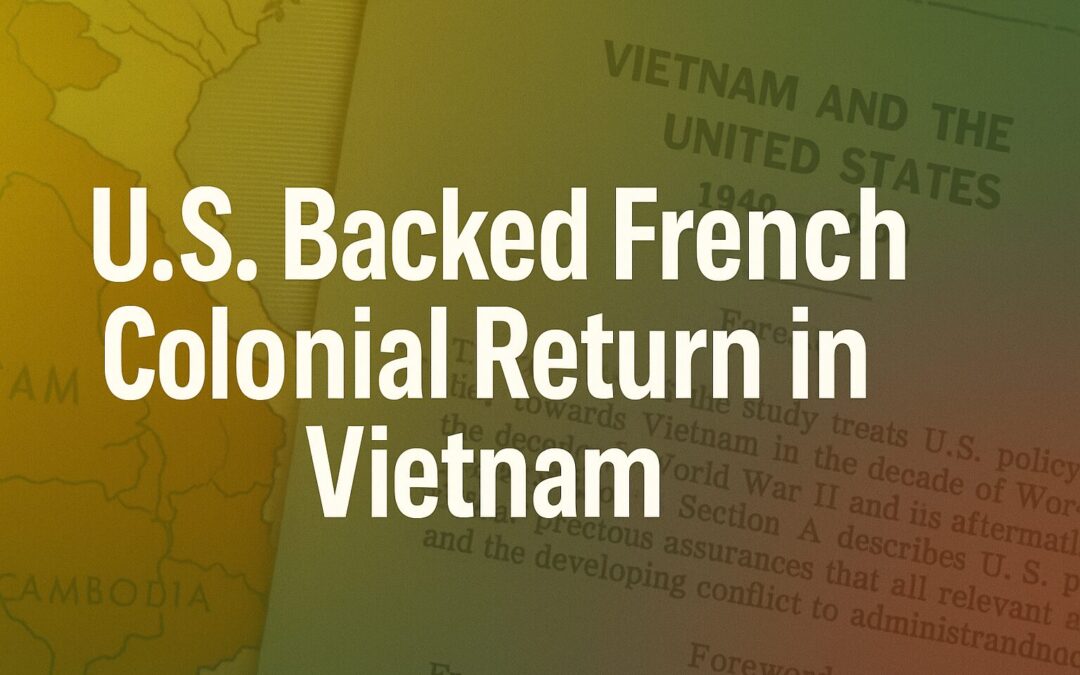In 1945, as colonial empires crumbled, the U.S. made a pivotal choice: back Vietnamese independence - or let France return.
Despite anti-colonial rhetoric, America sided with the latter. This is the untold beginning of U.S. involvement in Vietnam.
“We have fully recognized France’s sovereign position in that area.”
- U.S. State Department, June 1945
📜 The Myth of Anti-Colonialism
In public, Franklin D. Roosevelt railed against colonialism. Behind closed doors, the U.S. quietly chose to let France reclaim Indochina. Despite FDR’s support for a postwar trusteeship system and his belief that France had “milked” Vietnam for a century, his administration never challenged French sovereignty in writing.
After Roosevelt’s death in April 1945, that silence became policy.
🧭 Truman’s Quiet Approval
Within weeks of taking office, President Truman’s State Department told France it had “never questioned… French sovereignty” over Vietnam. Behind that polite phrasing was a complete reversal of Roosevelt’s stated goals.
The French returned with British support. Vietnamese nationalist leader Ho Chi Minh pleaded for American recognition. His requests were ignored.
📦 OSS Agents Worked with Viet Minh - Then Disappeared
In 1945, American OSS officers on the ground collaborated with Ho Chi Minh’s forces to resist the Japanese. They parachuted supplies, trained fighters, and even praised Ho’s commitment to U.S. ideals.
But as French troops landed in Saigon and overthrew the Vietnamese-led government in September 1945, the U.S. said nothing. OSS cooperation evaporated.
“It is not the policy of this government to assist the French to reestablish their control… by force.”
- U.S. Statement, October 1945
Yet no aid ever reached Ho Chi Minh. And no real objections were raised when French troops attacked.
📉 A War the U.S. Pretended Not to See
Between 1946 and 1949, France waged a brutal war against the Viet Minh. The U.S. called itself “neutral” but watched closely. They knew about French colonial brutality and still offered no alternative.
France’s “Bao Dai solution” - installing a puppet monarch - was quietly endorsed.
📻 Even the State Department Wasn’t Sure Ho Was a Communist
Declassified reports show that as late as 1948, U.S. intelligence admitted:
“To date the Vietnam press and radio have not adopted an anti-American position.”
But in 1950, the calculus changed. China fell to Mao. The Soviet Union recognized Ho’s government. The U.S. recognized France’s instead. Military aid followed.
💣 This Was the Real Beginning of the Vietnam War
Long before advisors or napalm or helicopters, there were quiet telegrams, ignored cables, and unspoken betrayals.
📍 It didn’t start in 1964. It started in 1945 - when the U.S. decided that colonizers were safer than communists.

